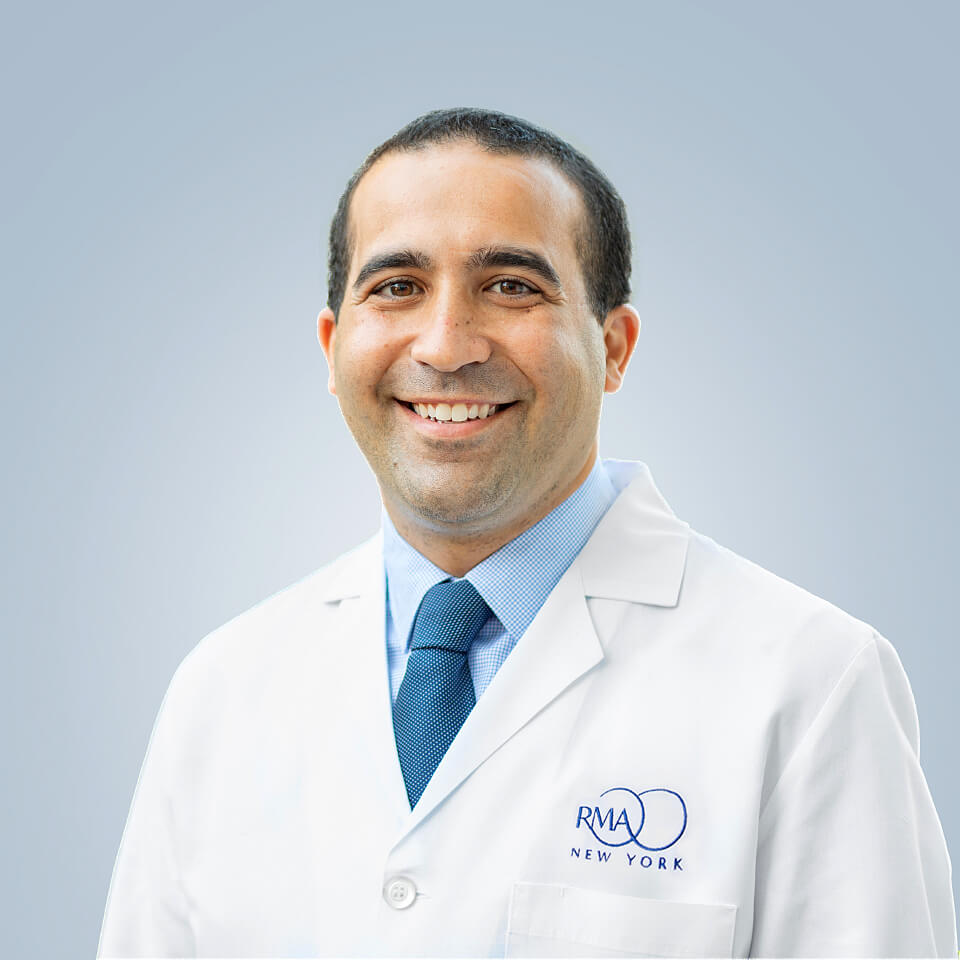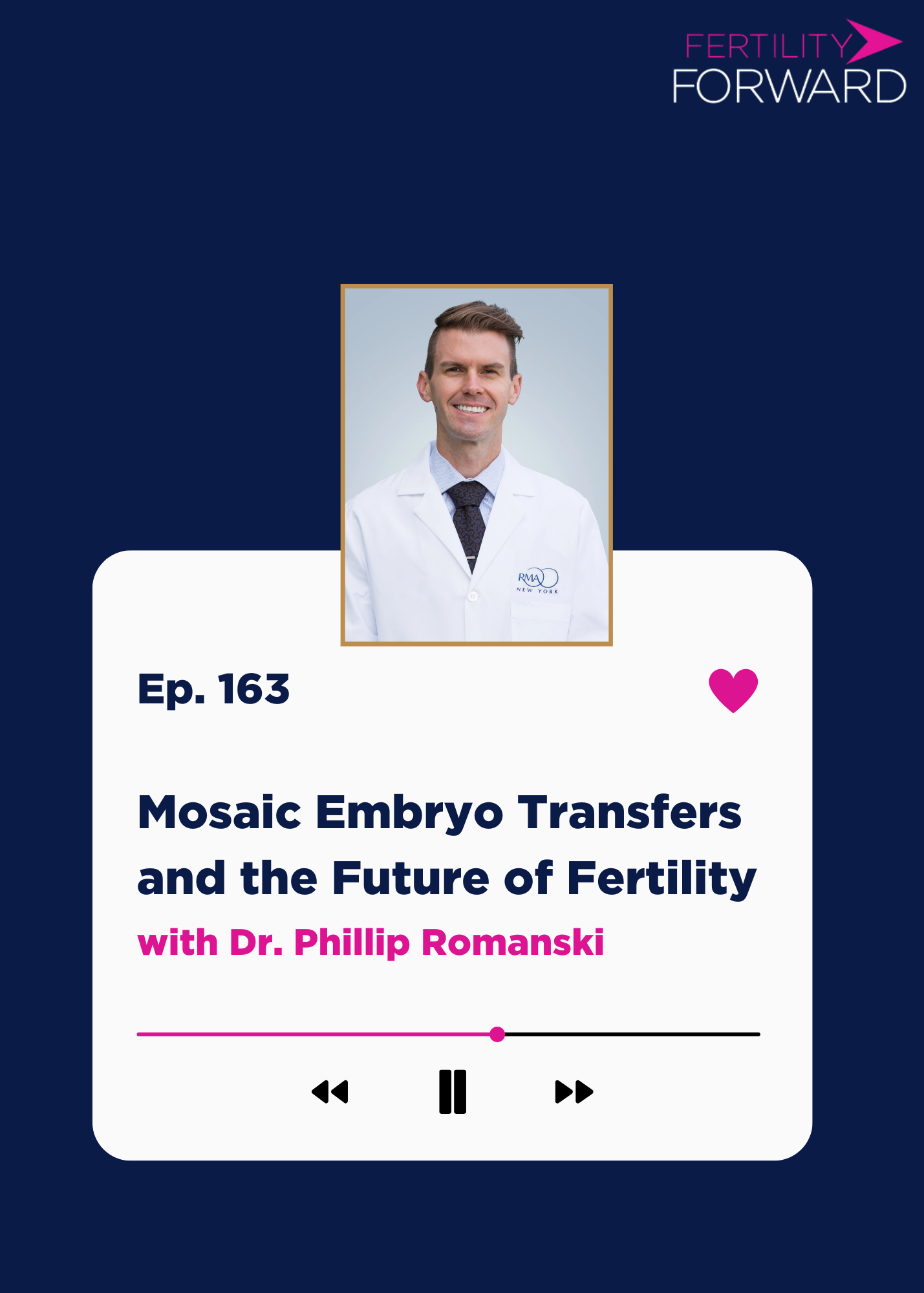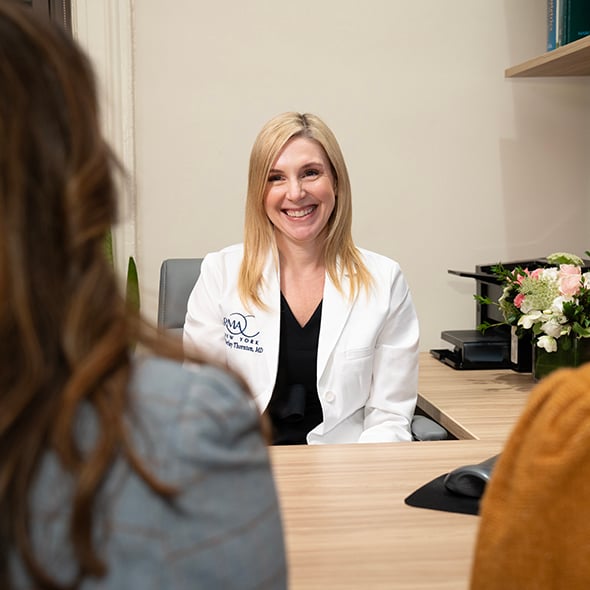
An IUI cycle may be natural (unmedicated) or medicated. A medicated IUI cycle is also known as an ovulation induction (OI) cycle. A medicated IUI cycle may include oral medications, such as Clomid or letrozole. These medications stimulate the ovaries to ovulate if a woman does not do so on her own or to produce more than one egg in a given cycle.
Timing insemination around ovulation is critical for achieving pregnancy success. In order to determine when you will ovulate, you and your fertility physician will monitor your cycle using either ovulation predictor kits (OPKs) at home or by coming into the office for transvaginal pelvic ultrasounds and hormone blood tests. The OPKs help your doctor detect the natural surge in luteinizing hormone (LH) before ovulation. The transvaginal ultrasound looks for a growing follicle (which contains the egg). When the follicle reaches the right size, an additional medication called Ovidrel may be used to trigger ovulation. Most IUIs are performed within 24-48 hours after the LH surge is detected or Ovidrel is given.
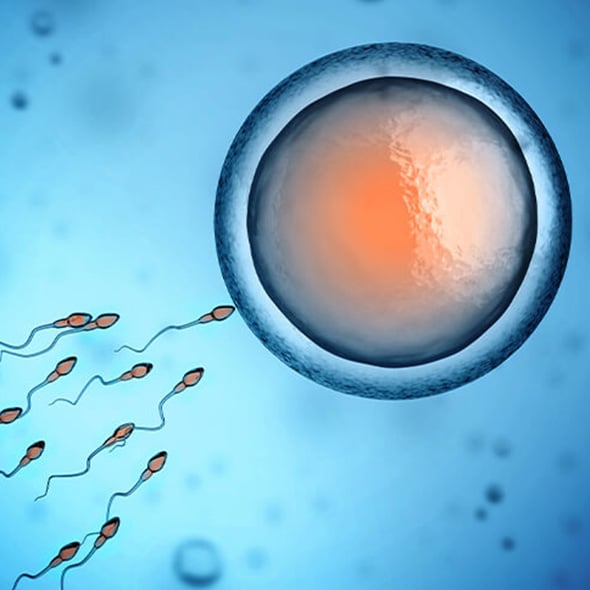
Donor Sperm
RMA of New York will coordinate with your chosen sperm bank to have sperm vials delivered to our office in advance of your IUI procedure. Lesbian individuals and couples typically utilize sperm from either a non-identified donor (also called an anonymous donor) or a directed/identified donor (also called a known donor). Sperm from a non-identified (anonymous) donor can be purchased from a licensed sperm bank. The donor and sperm are pre-screened and vials are often available for immediate purchase and shipment. If you choose to use a directed (known) donor, the donor will need to complete a full medical examination and their sperm will need to be tested and quarantined for 6 months, and then re-tested to rule out HIV and other transmissible diseases. When using a directed donor, It is important to factor in this 6 month quarantine period when determining your family-building plan. Because using a directed donor can raise both legal and other issues, it is important to consult with a reproductive lawyer and counselor who specialize in donor conception. A member of the RMA of NY team can provide recommendations for trusted sperm banks, reproductive lawyers, and counselors.
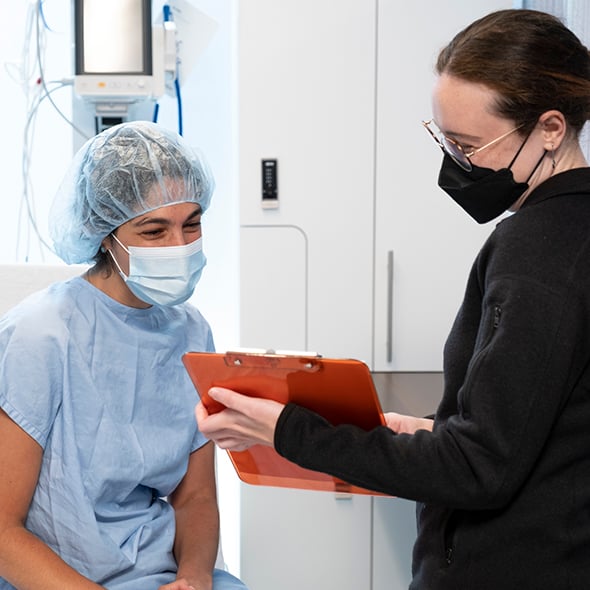
The IUI Procedure
During the IUI procedure, a speculum is placed in the vagina and a thin catheter is used to transfer the concentrated donor sperm solution to the top of the uterus. The fallopian tubes enter the uterus at the top and are what allow the egg and sperm to meet. The patient experience is often described as being comparable to a Pap smear. While there may be some mild discomfort due to the speculum, you are unlikely to feel the catheter as it enters the uterus. Some patients may experience mild cramping following the IUI.
Once the procedure is finished, you will be asked to remain in a relaxed position for at least five minutes. Patients are able to resume normal physical activities on the same day as the procedure. Two weeks after insemination, you will be asked to take a home pregnancy test.
Our dedicated LGBTQIA+ Care Coordinator is available to answer any questions you may have and schedule appointments: [email protected].

Building Your Family with Donor Sperm
RMA of New York partners with Fairfax Cryobank to connect our patients to high-quality donor sperm and advanced donor selection technology. Learn more about Fairfax Cryobank and exclusive benefits for RMA of New York patients.
Other Treatment Options for Lesbian Couples and Individuals
IVF (In Vitro Fertilization) for Lesbian Couples
IVF involves retrieving eggs and sperm, fertilizing them in an RMA of New York laboratory to create embryos, then placing a healthy embryo into the uterus to achieve pregnancy.
Learn MoreFamily-Building for Trans and Gender Diverse Couples and Individuals
Trans and gender diverse individuals and couples have a variety of options for fertility care depending on their unique situation. The most commonly used options include fertility preservation, IUI, IVF, donor egg, donor sperm, and surrogacy. Many of our patients also utilize genetic testing to increase their chances of success.
Learn More
Featured Resources
![Ep 163: Mosaic Embryo Transfers and the Future of Fertility with Dr. Phillip Romanski]() Podcast
PodcastEp 163: Mosaic Embryo Transfers and the Future of Fertility with Dr. Phillip Romanski
How can data enable doctors to best support their patients? Reproductive endocrinologist and …
Read More![Endometriosis: Causes, Symptoms, and Advanced Care in NYC]() Blog
BlogEndometriosis: Causes, Symptoms, and Advanced Care in NYC
Endometriosis is a condition that affects the female reproductive system and occurs when …
Read More![News 12: Women's Health Screenings By Age]() News & Press
News & PressNews 12: Women's Health Screenings By Age
Dr. Anate Brauer sat down with News 12 to discuss the importance of health screenings and which …
Read More
Get Started
It’s never too early to learn about your fertility and reproductive options.
Have questions?
We can help.
Patient-centric reproductive medicine is our specialty, and we look forward to answering any questions you may have.























